The chief editor of the online publication Gard.City from Pervomaisk, Halyna Davydova, sat down at her laptop in the first hour of the war and, as she confesses, got up about a month and a half later.
The last pre-war issue got stuck at “Nova Poshta” [A postal and courier service].
Before the war, 51-year-old Halyna Davydova, who resides in the city of Pervomaisk in the Mykolaiv region, was also the chief editor of the “TV Vsesvit” newspaper. The next issue was supposed to be released on February 24. The completed print run was on its way from Kropyvnytskyi, where it was printed, to Pervomaisk, but it never arrived.
– The newspaper got stuck in Uman at the ‘Nova Poshta’ building, which was delivering our publication, – the editor recalls. – It took a long time before we could retrieve it from there, so we couldn’t sell the print run. Therefore, there were no funds to publish the next issue. But it wasn’t just about the costs.
Logistics problems arose: where to print the newspaper and how to receive it (there is no printing press in Pervomaisk)? The enemy had almost reached Nova Oleksandrivka but was repelled.
– The paper newspaper disappeared, and it was our source of income. Whether we would have any salary was unknown – Davydova recalls and adds – But we couldn’t not to work. The thought never even crossed our minds, although perhaps there was some degree of light-heartedness.
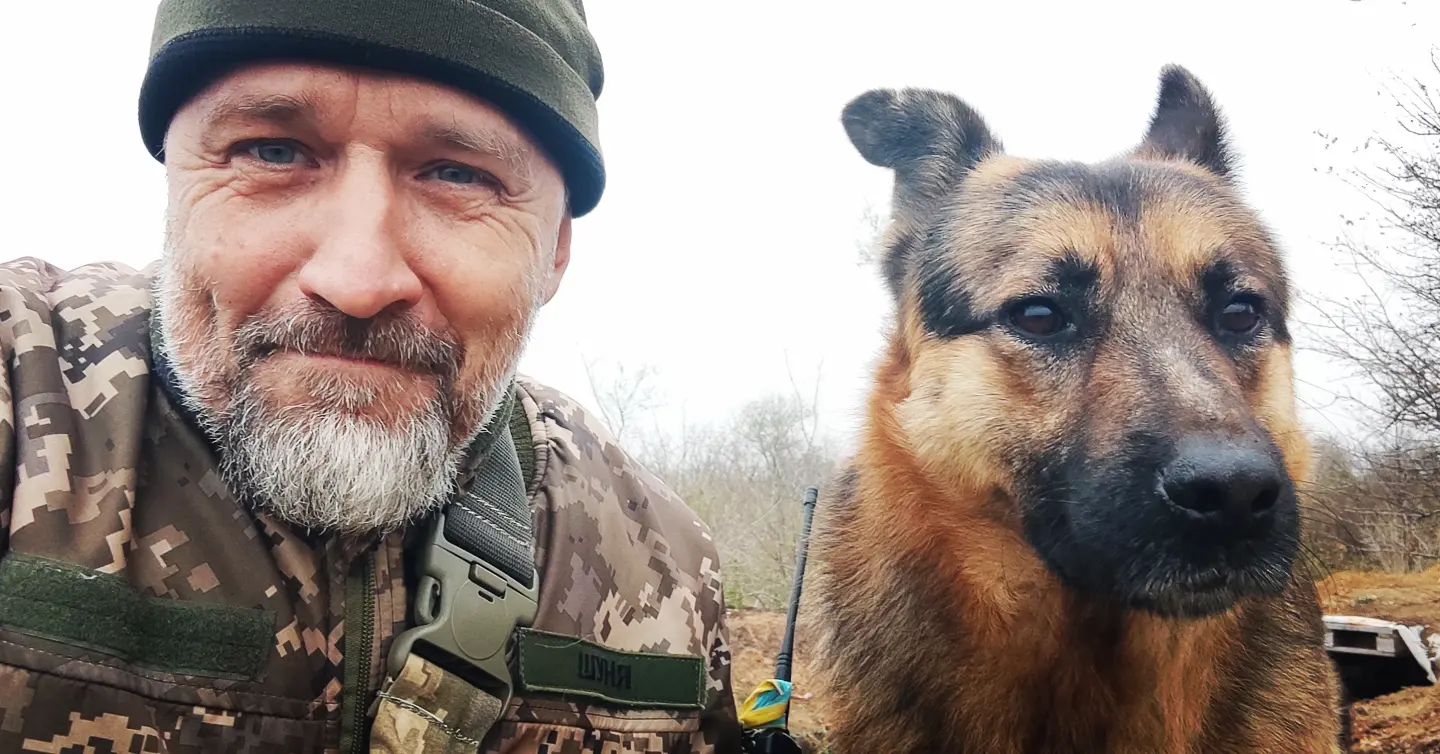
“All the city’s journalists know each other, and that helped.”
The editorial team underwent changes during the war. Before the conflict, it included the chief editor, three journalists, a layout designer, a technical editor, an accountant, and Daniel Davidov, who was both a computer typesetting operator and a videographer. However, on February 26, Daniel had already joined the military recruitment office.
The technical editor, Olexander Shumilin, involved in the early days of “TV Vsesvit,” joined the territorial defense. Two female journalists relocated abroad, one to Poland and the other to the United States. The manager searched intensely for replacements, successfully finding them in the small town. Subsequently, the quest for donors commenced.
– Before the war, I didn’t even know what it meant to apply for grant support, – Halyna says. – We operated as a commercial publication, and our advertising department was doing well: we printed announcements, advertisements, and native advertising. But the advertising market collapsed completely. To find financial support, I had to master an entirely new task – applying for support for grants. And now we’re working, and, thank God, we have been able to provide salaries for now.
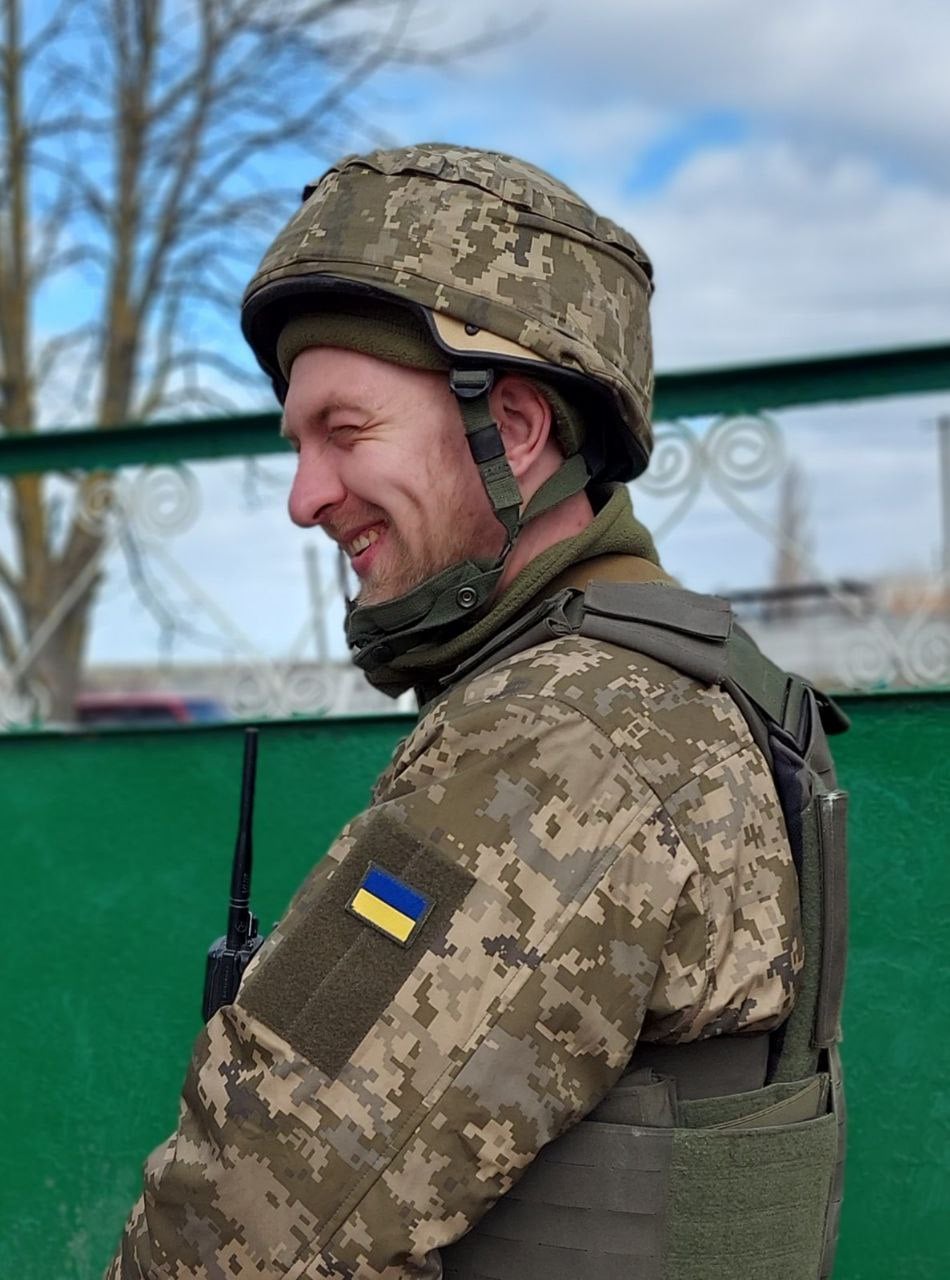
“We were like an information resource.”
In Pervomaisk, there were no bombings or air raids. However, life changed dramatically from the first moments of full-scale aggression. Some people rushed to the store to buy grains, sugar, salt, and matches, while others went to withdraw money from ATMs or buy medicines.
In these chaotic circumstances, Gard.City became an indispensable guide. The pre-war practice of the publication was useful because it actively provided information and assistance to readers: answering questions, providing guidance, and explaining things.
– We had already been working as an information resource, – describes Halyna Davydova, explaining how their work continued. – At midnight or 2 AM, whenever there was a loud noise, we promptly updated our Telegram and Viber channels, providing reassurance and explanations. Our unique access to authorities allowed us to publish official information.
The online publication saw a significant increase in views to the extent that reviving the printed newspaper seemed unnecessary. The number of monthly views rose from 60,000 to 200,000 (in March and April 2022) in a city of 60,000 residents.
“Our journalist was suspected of espionage by an elderly man.”
Halyna explained her work at the beginning of the war:
– When I got up, or rather, when my husband pulled me away from the desk, my legs felt like logs. That’s because, for about a month and a half, I was practically immobile – it was all about using my brain, hands, and fingers.
The editorial staff organized their work during this extreme period in the following way: two female journalists moved around the city to find out what was happening, took photos, noted ATMs with cash, identified pharmacies where medicines could be purchased, places with queues, and addresses where one could join volunteer efforts.
The editor would immediately broadcast this live information, update a special information article, and people sent their questions. The journalist-girls would run around, looking for answers, recording, taking photos, and answering the questions. Halyna Davydova recalls a curious incident amid the continuous tension:
– One elderly man suspected our journalist of espionage when she was taking a photo of an ATM with cash. He snatched her phone and grabbed her by the elbow. Our Juliya grabbed the old man because she didn’t want to lose her phone. She was riding a bicycle. So, they ended up at the police station, holding each other, with the phone and the bicycle. Juliya even managed to call me on the way. I called the police press service, and they sorted it out. The old man apologized. That’s the kind of situation we had.
After that incident, they took fewer photos because people were very nervous.
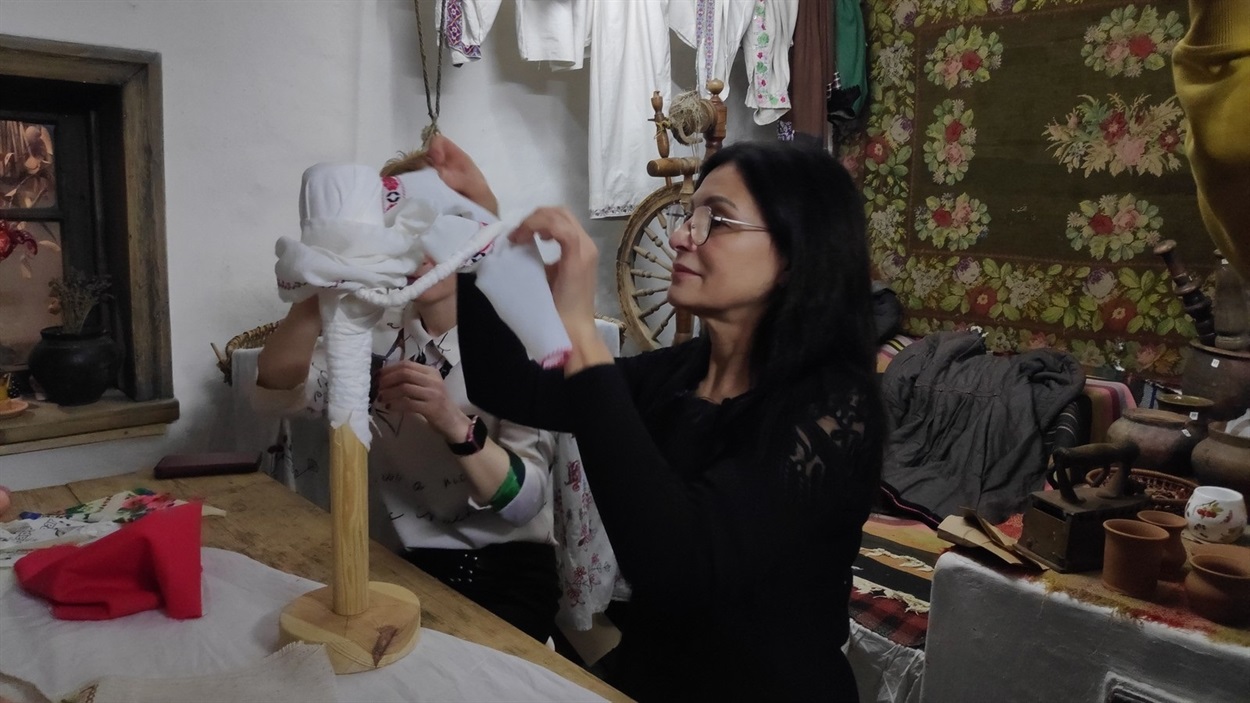
Returned to Performing Regular Functions…
In about a month, Pervomaisk residents adapted to the new situation, resuming their daily activities. Gard.City transitioned back into its role as a commercial press, initially offering free advertising during the crisis. Subsequently, they introduced minimal and reasonable fees for ads, gradually increasing them, which was well-received by advertisers.
– For internally displaced people and those in difficult circumstances, we still print ads for free – Halyna Davydova shares her experience. – If an entrepreneur approaches us and says they can’t pay for advertising right now but will support us in the future, we publish it for free.
In the small city of Pervomaisk, there are now over 6,000 internally displaced people. Gard.City created an information hub for them, containing contact information for municipal institutions, public transport details, hospitals, and educational facilities. Providing assistance to internally displaced people is an essential part of the editorial work. Halyna explains how this works with the help of social media:
– For instance, a person reached out to me in a Viber group or directly: ‘Please print an ad for me. We came from Kherson and found a place to stay, but we don’t even have anything to sleep on.’ In other words, people are looking for a sofa, some old bed so their children have a place to sleep. We print the ad, and later, the displaced person writes, ‘Thank you; a man called us and offered a sofa, and the next day, he brought it himself.’ People here are kind-hearted. They help each other very effectively. It’s always heartwarming to see.
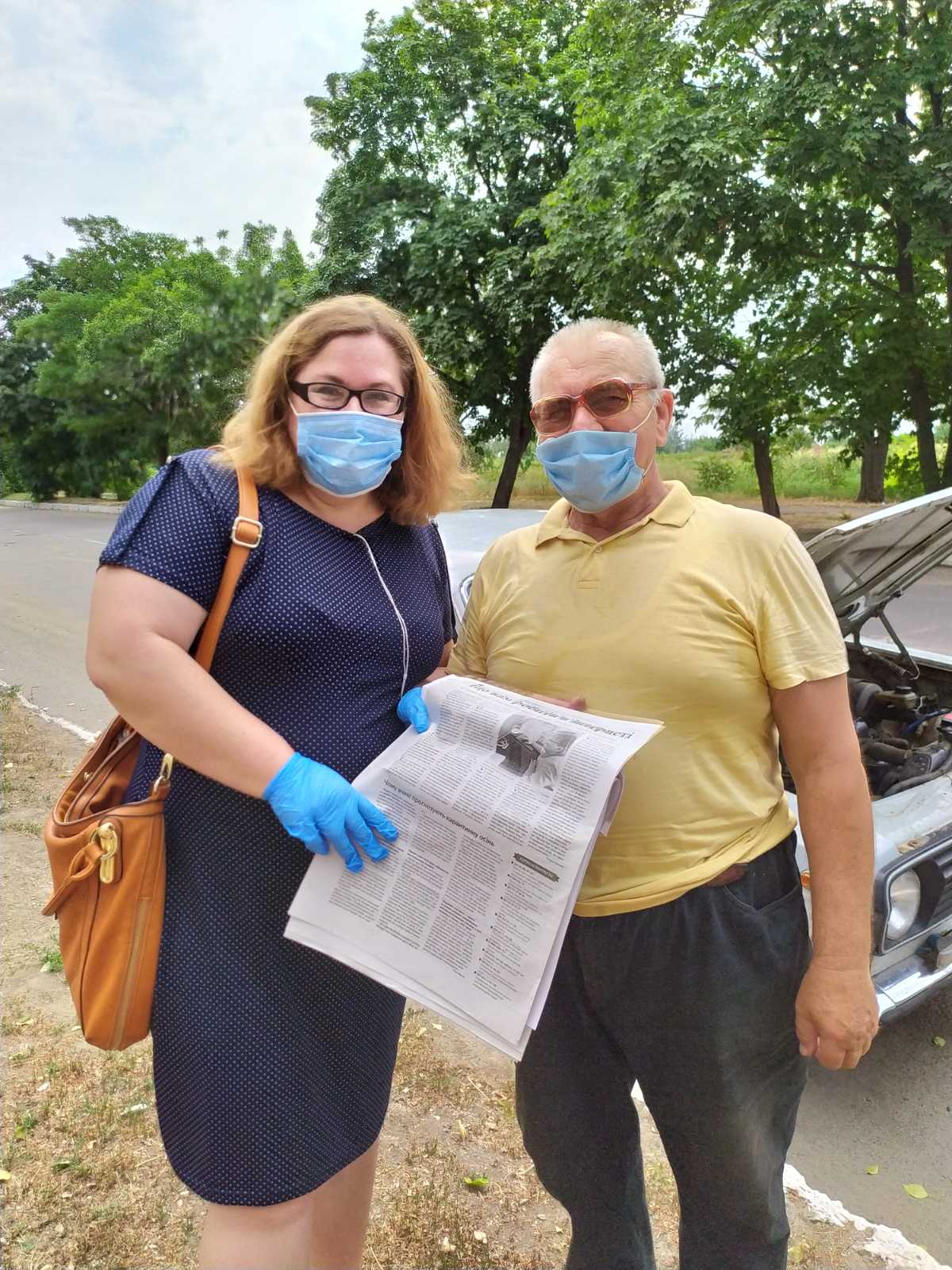
…And Became Versatile
During the war, the editorial team transformed, but as the head of the team explains, they “crystallized; the people who would stand by you in any situation remained. If needed, they would go anywhere, even amid sirens, take initiative, and get things done.”
The clear division of labor within the editorial work disappeared. Previously (both the newspaper and the website were managed by the same people), someone was responsible for the design, while someone else wrote journalistic materials. Now, the chief editor takes on both roles.
– There’s no way around it; we became versatile, – our conversation partner confesses. Previously, they used to work hard just to maintain their position. Now, in order to stay competitive with other media outlets, they need to be even more dynamic and proactive. They have to continuously adapt and stay ahead of the competition.
The changes in the team were implemented organically.
– We have a very talented girl, Juliya Savva, – the editor says. But there was no journalist vacancy; she used to work as a proofreader at the newspaper. When our correspondent went to Poland, this girl naturally transitioned from proofreading to journalism. We had no plans to lay anyone off. If people had stayed, we would have shared the salary fund we managed to earn.
Currently, the publication has two full-time journalists working in addition to the editor. They also involve freelancers.
As for the printed newspaper, they decided to discontinue it. During its prime, its circulation reached up to 14,000 copies, but recently, it was down to 2,000.
– People use smartphones for information. We decided to focus our efforts on digital platforms, – explains the chief editor.
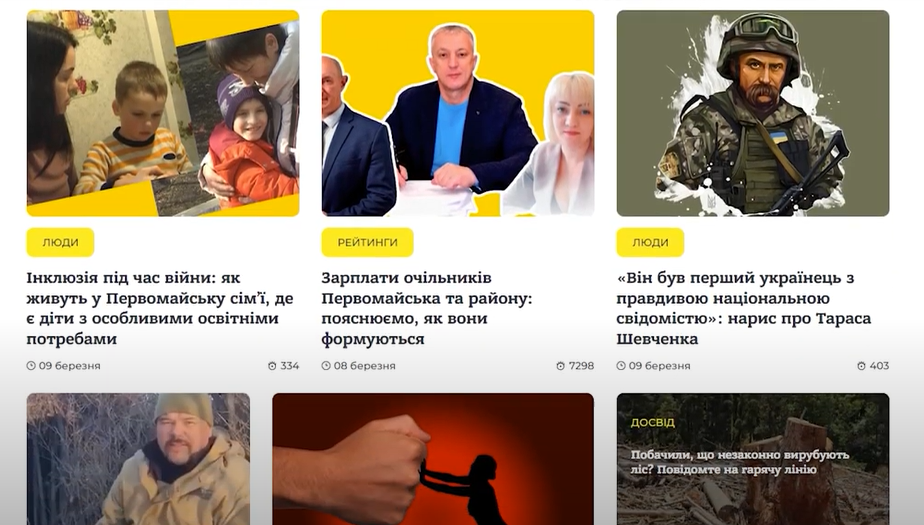
Webinars saved us from trouble.
Despite her busy schedule, Halyna Davydova regularly follows webinars in the National Union of Journalists of Ukraine’s Telegram channel. She often multitasks, watching webinars on one device while working on article layouts on another to meet tight publication deadlines.
As soon as she learns about a fact-checking webinar, she immediately registers and participates. She explains the benefit of webinars like these and the importance of continuous learning:
– As an optimistic person, I’m inclined to believe what I hear. If it weren’t for these webinars and training from the Union and ‘Beyond the News,’ I don’t know how many problems I would have caused in my media. Thanks to these, we don’t fall for fake news, – she says.
Professional communities provide support and a sense of not being alone. For example, Halyna recalls a specific incident:
– One day, I posted an angry message on Facebook about the threats our editorial office was receiving from a man who claimed to be a local official (later revealed to be a self-appointed figure). Shortly after the post, I received a call from Taras Kremen, the language ombudsman, and Serhiy Tomilenko, the head of the National Union of Journalists of Ukraine, offering their support: ‘We are ready to protect you.’ While I’m resilient myself, it was a pleasant surprise to realize the importance of not being alone, having the Union of Journalists, and supporting each other.
In addition to the National Union of Journalists of Ukraine, Gard.City closely collaborates with ABO, the agency for the development of local media, and the UAMB, the Ukrainian Association of Media Business. The publication is currently operating under a grant project called “Life in Wartime” by the Public Interest Journalism Laboratory.
The experience of Gard.City demonstrates that even small media outlets have the opportunity to receive substantial financial and professional support.
“I Won’t Go into the Basement Anymore.”
Evacuating was a difficult thought for Halyna Davydova. She cares for her 82-year-old mother, making it challenging to leave their home. Her son serves in the airborne troops, and her daughter, who lost her job in Odesa, went to the UK with a work visa.
– It’s very reassuring when I see words like ‘Hi, how are you?’ in the morning, – their mother says affectionately. My little boy writes to me: ‘What’s going on there?’
These days, Halyna Davydova enjoys reading printed books that she used to postpone. Power outages provide an opportunity for this leisure activity. She recently found delight in “Magical Potion,” a book by the Kapranov brothers. She thanks the authors for their intellectual humor and Ukrainian charm, especially since the authors grew up in her native Mykolaiv region.
This series, titled Executed Free Speech, is created as part of a project Drawing Ukrainian And International Audience’s Attention To Serious Violations Of Human Rights And Crimes Against Journalists And Mass Media By The Russian Federation, which is performed by the National Union of Journalists of Ukraine, with support from the Swedish non-profit organization Civil Rights Defenders.
JOURNALISTS ARE IMPORTANT. Stories of Life and Work in Conditions of War is a cycle of materials prepared by the team of the NUJU with the support of the Swedish human rights organization Civil Rights Defenders.
#CRD

 THE NATIONAL UNION OF
JOURNALISTS OF UKRAINE
THE NATIONAL UNION OF
JOURNALISTS OF UKRAINE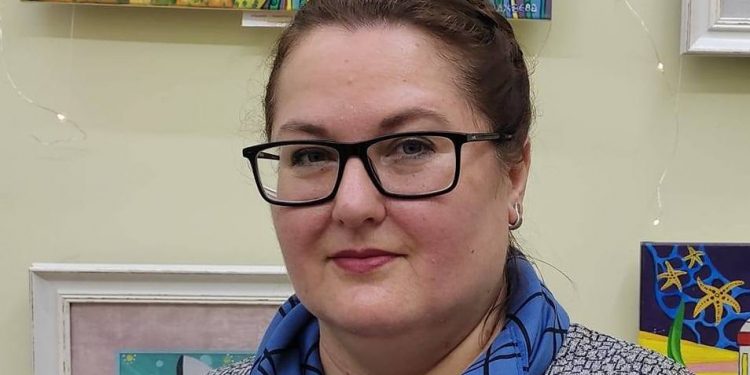
















Discussion about this post